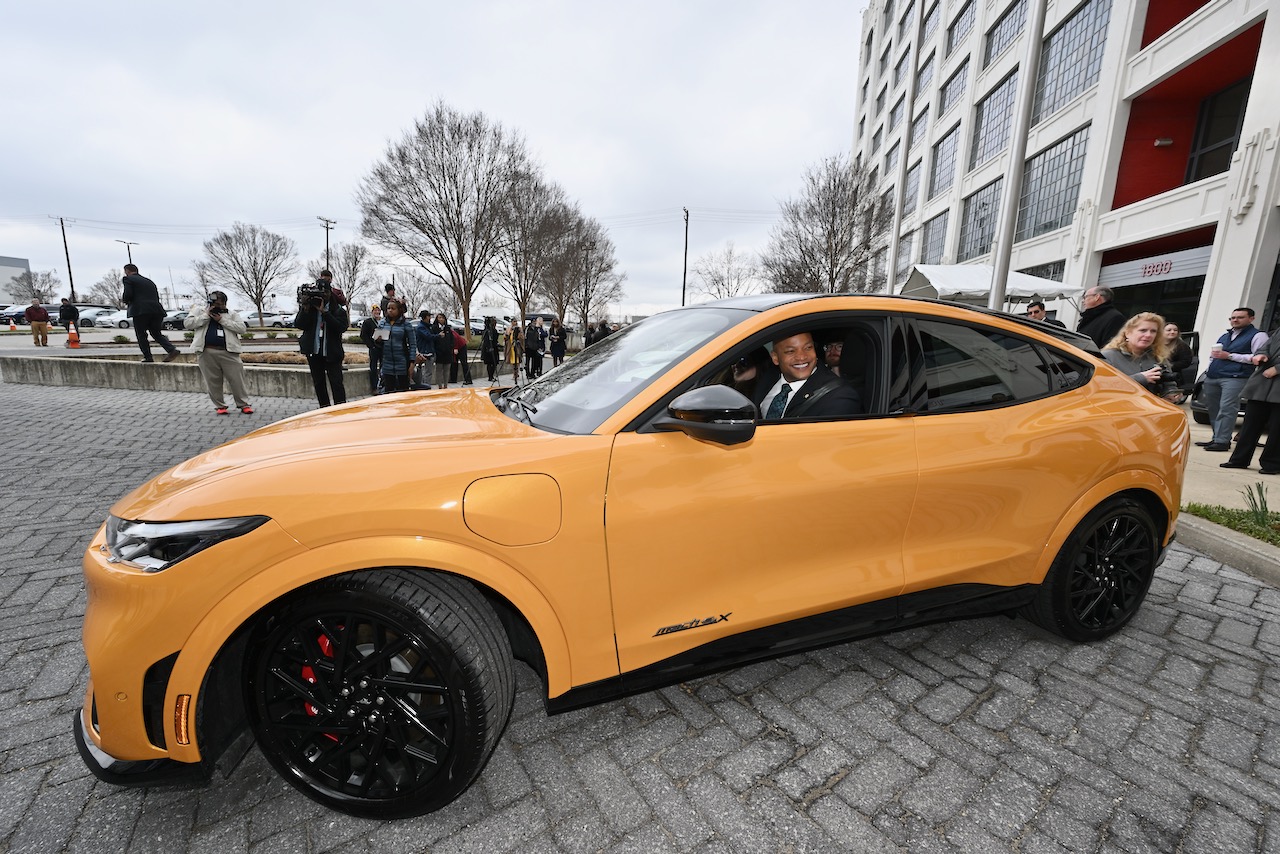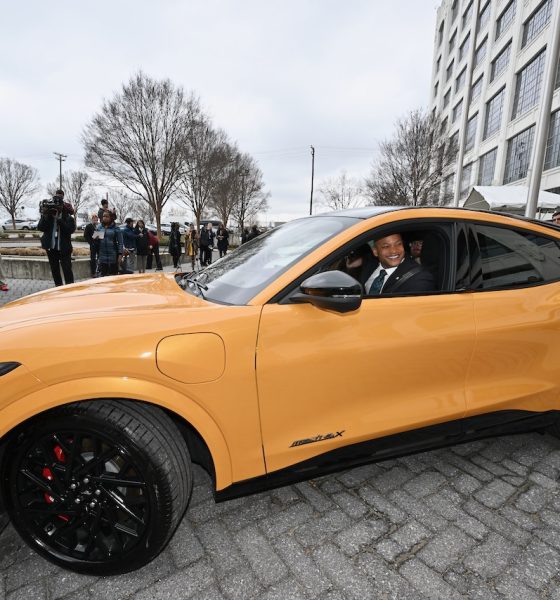The State of Maryland followed in the footsteps of California today by banning all new gas vehicle sales by the model year 2035.
On Monday, the State of Maryland’s Air Quality Control Advisory Council unanimously voted to approve a regulation that would see an implementation of California’s vehicle emissions standards, which have specific goals to have a certain percentage of new vehicle sales be emission-free.
Maryland laws already exist that require the State to match California’s vehicle emissions programs. Maryland aligned with the California Air Resource Board (CARB) vehicle standards in 2011 and is one of seventeen states in the U.S. to adopt the same standards.
Today I announced action to ensure that all new passenger cars and trucks sold in the State of Maryland are zero emission by 2035.
Car exhaust is the largest source of greenhouse gas in the State of Maryland. This new regulation puts us on a fast-track to meet our climate goals. pic.twitter.com/qR7R20fvAW
— Governor Wes Moore (@GovWesMoore) March 13, 2023
“This is a policy that was created in California,” House Minority Leader Jason Buckel said in a statement to the Baltimore Sun. “It is based on California’s economy, California’s transportation needs, and California’s electrical grid.”
The proposal will require 43 percent of Maryland’s new car sales to be zero-emission by 2027. By the model year 2035, all new passenger vehicles sold in Maryland will need to be zero-emission. The requirements allow plug-in hybrid vehicles to account for 20 percent of the requirements.
Maryland Governor Wes Moore criticized the previous administration, run by Larry Hogan, for dragging its feet to push the state’s fleet of passenger vehicles to be more sustainable:
“The last administration pumped the brakes on this regulation, but today I am proud to say that we’re getting rolling again.”
Moore drove off from a Monday press conference in a Ford Mustang Mach-E, which was the Detroit-based automaker’s initial EV rollout several years ago.
“Today, we’re talking about a major transformation that is going to define this administration—and that’s how we turn Maryland from a state powered by oil and gas to a state powered by clean energy,” Gov. Moore said in a press release. “I am confident that the state of Maryland can and will lead the clean energy revolution.”
383,000 fewer new gas-powered vehicles would be sold under the new rule by 2030. This figure rises to 1.68 million vehicles by 2035.
The requirements are expected to be finalized by September and the public will be given an opportunity to comment and voice concerns. The rule will receive an advisory review from a legislative committee.
In August, California became the first U.S. state to ban the sale of new gasoline cars by 2035. Every new car sold in the state after that year is required to be 100 percent free of fossil fuel emissions.
“The climate crisis is solvable if we focus on the big, bold steps necessary to stem the tide of carbon pollution,” Governor Gavin Newsom said in August when the goal was announced.
California plans to have 68 percent of its new car sales be zero-emissions by 2030. 35 percent of new car sales will be free of fossil fuels by 2026.
Don’t hesitate to contact us with tips! Email us at tips@teslarati.com, or you can email me directly at joey@teslarati.com.

Cybertruck
Tesla drops latest hint that new Cybertruck trim is selling like hotcakes
According to Tesla’s Online Design Studio, the new All-Wheel-Drive Cybertruck will now be delivered in April 2027. Earlier orders are still slated for early this Summer, but orders from here on forward are now officially pushed into next year:

Tesla’s new Cybertruck offering has had its delivery date pushed back once again. This is now the second time, and deliveries for the newest orders are now pushed well into 2027.
According to Tesla’s Online Design Studio, the new All-Wheel-Drive Cybertruck will now be delivered in April 2027. Earlier orders are still slated for early this Summer, but orders from here on forward are now officially pushed into next year:
🚨 Tesla has updated the $59,990 Cybertruck Dual Motor AWD’s estimated delivery date to April 2027.
First deliveries are still slated for June, but if you order it now, you’ll be waiting over a year.
Demand appears to be off the charts for the new Cybertruck and consumers are… pic.twitter.com/raDCCeC0zP
— TESLARATI (@Teslarati) February 26, 2026
Just three days ago, the initial delivery date of June 2026 was pushed back to early Fall, and now, that date has officially moved to April 2027.
The fact that Tesla has had to push back deliveries once again proves one of two things: either Tesla has slow production plans for the new Cybertruck trim, or demand is off the charts.
Judging by how Tesla is already planning to raise the price based on demand in just a few days, it seems like the company knows it is giving a tremendous deal on this spec of Cybertruck, and units are moving quickly.
That points more toward demand and not necessarily to slower production plans, but it is not confirmed.
Tesla Cybertruck’s newest trim will undergo massive change in ten days, Musk says
Tesla is set to hike the price on March 1, so tomorrow will be the final day to grab the new Cybertruck trim for just $59,990.
It features:
- Dual Motor AWD w/ est. 325 mi of range
- Powered tonneau cover
- Bed outlets (2x 120V + 1x 240V) & Powershare capability
- Coil springs w/ adaptive damping
- Heated first-row seats w/ textile material that is easy to clean
- Steer-by-wire & Four Wheel Steering
- 6’ x 4’ composite bed
- Towing capacity of up to 7,500 lbs
- Powered frunk
Interestingly, the price offering is fairly close to what Tesla unveiled back in late 2019.
Elon Musk
Elon Musk outlines plan for first Starship tower catch attempt
Musk confirmed that Starship V3 Ship 1 (SN1) is headed for ground tests and expressed strong confidence in the updated vehicle design.

Elon Musk has clarified when SpaceX will first attempt to catch Starship’s upper stage with its launch tower. The CEO’s update provides the clearest teaser yet for the spacecraft’s recovery roadmap.
Musk shared the details in recent posts on X. In his initial post, Musk confirmed that Starship V3 Ship 1 (SN1) is headed for ground tests and expressed strong confidence in the updated vehicle design.
“Starship V3 SN1 headed for ground tests. I am highly confident that the V3 design will achieve full reusability,” Musk wrote.
In a follow-up post, Musk addressed when SpaceX would attempt to catch the upper stage using the launch tower’s robotic arms.
“Should note that SpaceX will only try to catch the ship with the tower after two perfect soft landings in the ocean. The risk of the ship breaking up over land needs to be very low,” Musk clarified.
His remarks suggest that SpaceX is deliberately reducing risk before attempting a tower catch of Starship’s upper stage. Such a milestone would mark a major step towards the full reuse of the Starship system.
SpaceX is currently targeting the first Starship V3 flight of 2026 this coming March. The spacecraft’s V3 iteration is widely viewed as a key milestone in SpaceX’s long-term strategy to make Starship fully reusable.
Starship V3 features a number of key upgrades over its previous iterations. The vehicle is equipped with SpaceX’s Raptor V3 engines, which are designed to deliver significantly higher thrust than earlier versions while reducing cost and weight.
The V3 design is also expected to be optimized for manufacturability, a critical step if SpaceX intends to scale the spacecraft’s production toward frequent launches for Starlink, lunar missions, and eventually Mars.
News
Tesla FSD (Supervised) could be approved in the Netherlands next month: Musk
Musk shared the update during a recent interview at Giga Berlin.

Tesla CEO Elon Musk shared that Full Self-Driving (FSD) could receive regulatory approval in the Netherlands as soon as March 20, potentially marking a major step forward for Tesla’s advanced driver-assistance rollout in Europe.
Musk shared the update during a recent interview at Giga Berlin, noting that the date was provided by local authorities.
“Tesla has the most advanced real-world AI, and hopefully, it will be approved soon in Europe. We’re told by the authorities that March 20th, it’ll be approved in the Netherlands,’ what I was told,” Musk stated.
“Hopefully, that date remains the same. But I think people in Europe are going to be pretty blown away by how good the Tesla car AI is in being able to drive.”
Tesla’s FSD system relies on vision-based neural networks trained on real-world driving data, allowing vehicles to navigate using cameras and AI rather than traditional sensor-heavy solutions.
The performance of FSD Supervised has so far been impressive. As per Tesla’s safety report, Full Self-Driving Supervised has already traveled 8.3 billion miles. So far, vehicles operating with FSD Supervised engaged recorded one major collision every 5,300,676 miles.
In comparison, Teslas driven manually with Active Safety systems recorded one major collision every 2,175,763 miles, while Teslas driven manually without Active Safety recorded one major collision every 855,132 miles. The U.S. average during the same period was one major collision every 660,164 miles.
If approval is granted on March 20, the Netherlands could become the first European market to greenlight Tesla’s latest supervised FSD (Supervised) software under updated regulatory frameworks. Tesla has been working to secure expanded FSD access across Europe, where regulatory standards differ significantly from those in the United States. Approval in the Netherlands would likely serve as a foundation for broader EU adoption, though additional country-level clearances may still be required.










